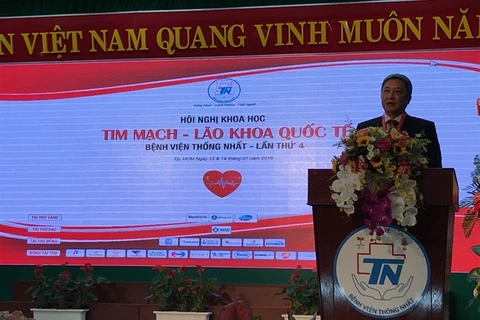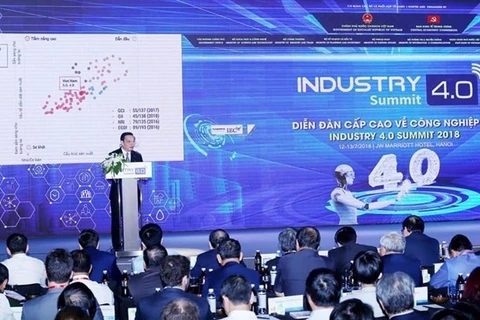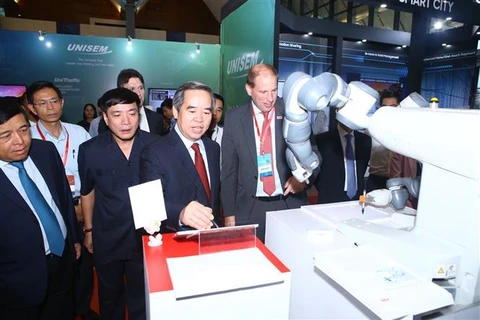Hanoi (VNA) – The Fourth Industrial Revolution (Industry 4.0) has greatly influenced Vietnam’s tertiary education, resulting in a transition in professions, curricula and training methods.
Labour-intensive jobs, new necessary skills and the corresponding transition in training methods in Industry 4.0 were pointed out by speakers at a conference on new demands in tertiary education in the science – technology sector in Vietnam by 2025, with a vision to 2030.
The conference was held by the training support centre under the Ministry of Education and Training (MoET) in Hanoi on October 24.
New requirements in professions and skills
Speaking at the event, Dr. Tran Sam of the Higher Education Department under the MoET said to meet the human resources demand of Industry 4.0, a number of jobs have become more popular, namely bio-technology, digital technology and physics, with core factors in Industry 4.0 being artificial intelligence (AI), Internet of Things (IoT) and big data.
The most demanding jobs in Industry 4.0 include technology and engineering.
Statistics of the MoET’s training support centre show that Vietnam had 114 training establishments of 111 universities and academies in technology and engineering as of September 2019.
Education establishments of such sectors with various majors and enrolments comprise of the Ho Chi Minh City University of Technology and Education with 47 majors, the University of Technology - Vietnam National University HCM City with 33, followed by the Hanoi University of Science and Technology with 32, and more.
The percentage of students finding jobs upon graduation also illustrates that 70 percent of graduates in technology, engineering, computer and information technology can find jobs, much higher than those in other fields.
In addition to the transition of professions, Industry 4.0 requires new capacities from labourers. According to a research by Assoc. Prof. Pham Van Son and Assoc. Prof. Ngo Tu Thanh of the School of Engineering Pedagogy of the Hanoi University of Science and Technology, in the next year, demand for solving complex issues will account for 36 percent, while that for technical skills will only stand at 12 percent and for physical ability at merely 4 percent.
Automation, AI and digitalisation will pose a serious threat to job hunting activities.
However, automation cannot replace human being in decision-making and cognitive flexibility. Therefore, labourers in the digital era must possess skills that are irreplaceable by machines such as innovation, emotional intelligence and cognitive flexibility.
The rapid change in technology in Industry 4.0 will require workers to quickly adapt themselves to the new situation as well as learn new skills and methods.
 Students are advised to foster creativity and be adaptive in new environment due to Industry 4.0 (Photo: VietnamPlus)
Students are advised to foster creativity and be adaptive in new environment due to Industry 4.0 (Photo: VietnamPlus)
New requirements in transition of training
Assoc. Prof. Pham Van Son said that Industry 4.0 forces universities to bring forth changes in training orientations to help students satisfy new requirements in seeking jobs and obtaining necessary skills.
Regarding the training method, online learning is believed to meet businesses’ demands. Internet connection and super data will be an efficient tool to adjust the learning structures and traditional pedagogy which has many limits like high costs, narrow spaces and inflexible schedules.
In terms of curriculum, Dr. Sam said to get accustomed to changes brought about by Industry 4.0, classroom arrangement and management must facilitate learners to boost their own ability to apply new technology, learn new skills, and acquire basic knowledge, creativity and adaptation to the new standards.
Teaching methods should vary in both schedule and location in a bid to bolster learners’ study choices to join suitable projects and gain real life experience.
Furthermore, education establishments should work to strengthen cooperation with businesses in teaching and scientific research in accordance with impact of Industry 4.0, Sam added./.

























